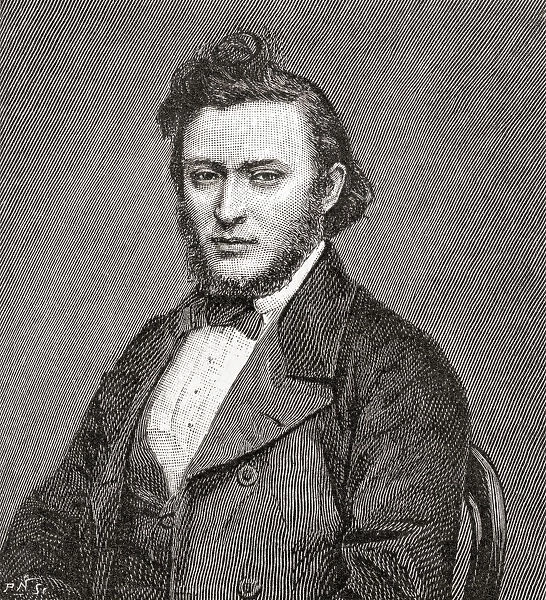 Photo : paperjewels.org
Photo : paperjewels.org
Gottlieb Wilhelm (William) Leitner was a man of exceptional talent. A multilinguist, educationist par excellence and one who understood cobwebs of theological discipline, is the ‘Founding Principal’ of the Government College Lahore. He was precocious. Born in a Jewish family in Budapest in 1841, Wilhelm Leitner proceeded to Constantinople where he mastered Turkish and Arabic languages. At that time, he was only ten years old.
Subsequently, Leitner was appointed Interpreter to the British Commissariat during the Crimean War ‘with the rank of a Colonel.’ Then, he was only fifteen. In 1859, Leitner became Lecturer in Arabic, Turkish and Modern Greek at the King’s College, London, where two years later at the age of twenty-three, he was serving as Professor of Arabic and Mohammedan Law.
After the War of Independence in 1857, the British wanted to promote Western education, especially in the north – western parts of the subcontinent. A decision was taken to establish a college of repute in Lahore, as an affiliate of the University of Calcutta. Wilhelm Leitner gladly accepted the offer to serve as the first Principal of the Government College Lahore. The year was 1864. He also contributed towards the setting up of the University of the Punjab and other institutions of significance.
Wilhelm Leitner, claimed Encyclopaedia Britannica in 1911, “spoke, read and wrote in twenty-five languages.” He wrote on Arabic grammar, and on ethnography in areas which today constitute Pakistan. The beauty of the Hindukush – Karakorams, especially Gilgit, Hunza, Nagar and Chitral regions, fascinated him.
At a time when the creed of the Prophet was under great stress due to the colonial rule, Wilhelm Leitner authored a book on Islam. It was in Urdu, written with help of a Muslim scholar Muhammad Hussain Azad. Not readily available today, the book was published “in two volumes, in 1871 and 1876.”
Later, on return to England, Leitner continued with his intellectual pursuits. He established the Oriental Institute in south of London, meant for students from the subcontinent. He continued to educate the West on and about the East. At a talk in London in 1889, Wilhelm Leitner described Islam as “a great religion”, “perfect religion”.
According to King’s College writeup dated 21 March 2018: “Leitner was a tireless advocate of the fair treatment of Islam by the West.” He wrote a pamphlet titled ‘Muhammadanism’ which explained Islam at length, “refuting attacks against it.”
Leitner stood for interfaith harmony. His sympathetic understanding of the Asian cultures and way of life, distinguish him as an advocate of multi-culturalism ahead of his time. Leitner established literary societies and libraries; and published periodicals in different languages to promote education, ‘western education’, which has been termed as ‘modern education.’ Not that, before the arrival of the British, the literacy rate in the subcontinent was dismal; it was higher, much higher. Then, when the ‘Master of Destinies’ makes changes in the fortunes of the nations, times change. When times change, adjustments are made according to the requirements of the new time. Wilhelm Leitner died on 22 March 1899 in Bonn. He received an honourable Christian burial in ‘Woking’, close to London, “near a mosque he (had) founded.”
Arabic phrase ‘Al – Ilmu Khayram Min al – Maal’, translated as ‘Knowledge is better than wealth’, was inscribed on his tombstone. Dr. Gottlieb Wilhelm Leitner was a man of letters, indeed a great scholar.
The prestigious Government College Lahore he established, lives on, now as a University, with traditions and high ideals as encapsulated in the motto ‘Courage to Know.’
(As officer of the Foreign Service of Pakistan, Ambassador Afrasiab served in various capacities in the Pakistani Missions in Washington DC, New Delhi, Vienna, Beijing, Dhaka and Wellington. He has authored books on Pakistan and its foreign relations, and on subjects relating to theology and eschatology. Also published by The Express Tribune 2023.)






